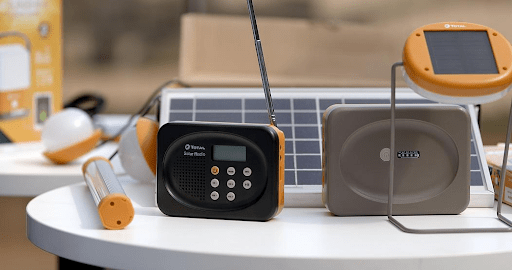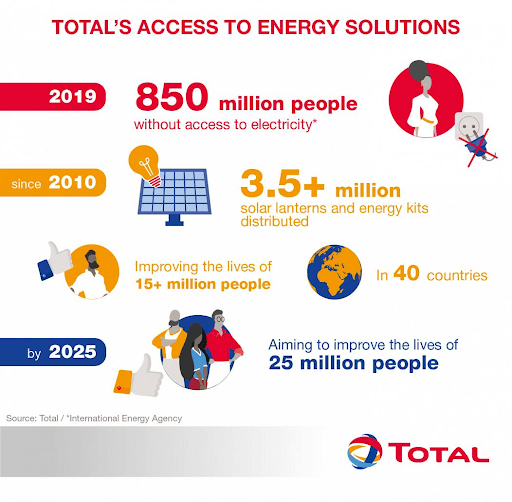By Akansha Jain
Sunlight is believed to have turned out to be the world’s great equalizer and energy. Total Access To Energy Solutions (TATES) is the leading face of the campaign. Its aim is to deliver solar power to some of the most remote places on earth. To have a number they have left a trail to 15 million people, in the Americas, Asia and Africa, and are aiming for 25 million by 2025.
The hit in the spine is that 850 million people worldwide still have no access to electricity. With unlimited demand outside, Total, one of the world’s leading energy companies, sees an opportunity to solve it. As a statement released by Total, their aim is to bring a source of energy to those who don’t have access or the network is unstable, we have a double bottom-line. It’s a business designed to make an impact but also to be profitable, it has to make money, to last long term.
Since 2010 the company has been developing a set of solutions. They have tried so hard to meet the energy needs of people in developing countries. They also had to mind the fight against climate change. From solar lighting kits to microgrids, Access to Energy means looking for sustainable and affordable solutions to meet ever-evolving needs.
For more information: https://www.youtube.com/watch?v=jl_2jzuvKsI&feature=emb_logo

Once the sun sets, a solar-powered lamp or a phone charger can be life-changing in places. It can be a blessing where darkness means many activities have to grind to a halt.
A single lamp which costs $8 USD, gives extra time to do their work or any household activities. In the wider perspective, it can generate extra income, as business hours can be extended, more activities can be undertaken and the end result is often job creation. Since the start of the TATES energy program, over 3.5 million solar lamps and kits have been distributed. Widespread in nearly 40 countries.

When Total Access To Energy Solutions started their work in the market it was not that crowded. But now that is changing fast. With different offerings across production, distribution and financing of products which perform well while limiting environmental damage, it becomes a necessary position for them.
It is a challenge the group welcomes, “As the market matures, it becomes more and more segmented with a much larger variety of actors, all driven to compete. TATES’ strategy relies on partnerships: we can’t do everything ourselves and we need partners on the ground,” Wattebled points out, “This is particularly true on the pay-as-you-go segment for which the value chains are long and complex. Segmentation of the market will drive more potential partners which will fuel our business model!”
Data source: euro news
